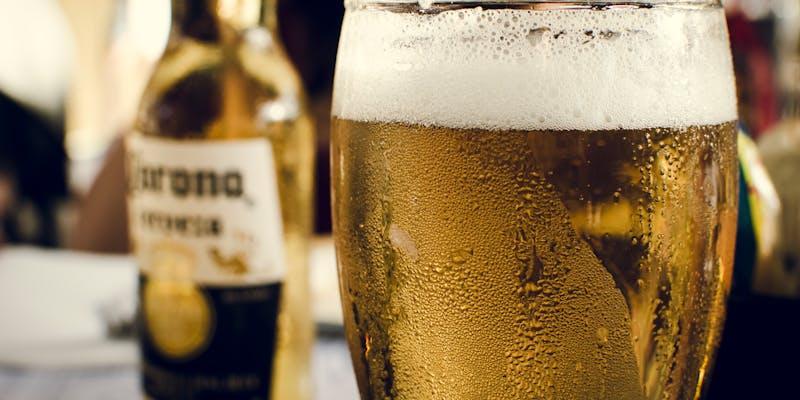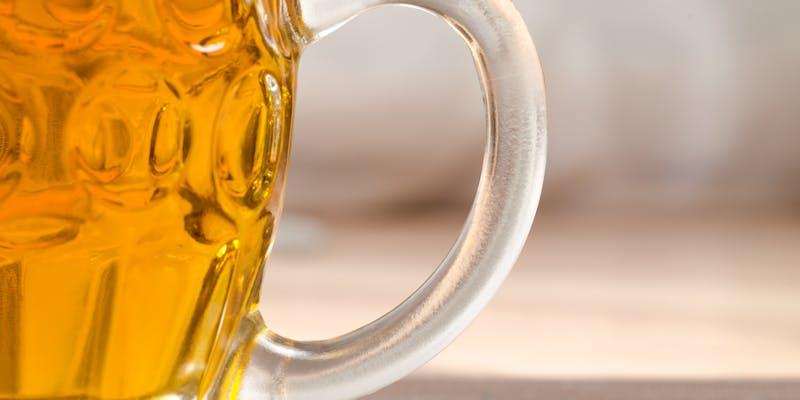Can You Get Fat From Drinking Beer? A Guide For Beer Lovers
Mar 25, 2024 By Nancy Miller
Over time, excessive beer use can cause weight gain. Heavy drinking can trigger hunger, tension, and appetite hormones because beer has many calories but few nutrients. More than one beer a day or binge drinking increases many health risks. Moreover, beer consumption increases abdominal fat, often called a "beer belly." However, light-to-moderate beer use and a beer diet do not induce weight gain.
Beer Making Procedure
Beer, enjoyed by thousands and thousands globally, has a centuries-antique record. It is made from barley, wheat, or rye and fermented with yeast, and it has many tastes and fragrances. Beer is made in several steps, each contributing to its unique flavor. In malting, grains are heated, dried, and cracked to show their brewing capability. Then, the grains are mashed in water to extract their sugars, developing wort, a sweet, sticky liquid.
Hops are introduced to the wort during boiling to stabilize the grain's sweetness, bitterness, and fragrance. Hops' specific taste provides depth and complexity to the beer diet, making it extra appealing. After yeast is introduced, carbohydrates ferment into liquor and carbon dioxide, forming beer. The beer is then bottled and elderly to increase and blend its tastes for a balanced consumption. Beer strength is indicated by its liquor by volume (ABV), usually 4-6%. However, beer lovers may find everything from light and pleasant to potent, with ABV levels from 0.5% to 40%.
Beer drinkers may try several styles, each with its taste. Pale ales are bright and balanced, while stouts are rich and roasted. Sweet and smooth, mild beers are a relaxing option. In contrast, wheat beers are refreshing and fruity, making them a summer favorite.
Nutrition of Beer
Beer's nutritional value varies by kind. This is a 12-oz (355-ml) serving of normal beer with around 4% liquor.
- Calories: 153 g
- liquor: 14 g
- Carbs: 13g
- Protein: 2 g
- Fat: 0g
Beer contains trace amounts of sodium, potassium, and magnesium. These nutrients can be the causes of a beer belly. However, it does not provide a remarkable supply of those vitamins since you must drink plenty to get enough. Remember that liquoric liquids have more energy.
3 Ways Beer Causes Fat Gain

Beer use may raise belly fat in several ways. They increase calorie intake, inhibit fat burning, and increase phytoestrogen intake. Beer may cause belly obesity for three major reasons:
Increases Calories Intake
If not taken moderately, beer can increase calorie intake and cause weight gain. Beer has about as many calories per gram as soft drinks. A regular beer diet might increase daily calorie intake.
Studies show that liquor, particularly beer, might temporarily increase hunger. This increased hunger might cause people to eat more, increasing calorie consumption. Research shows that eating less than other meals may not properly compensate for liquor calories. Due to this lack of compensation, beer drinking does not reduce other calorie intake.
Reduces Fat Burning
Beer and other liquoric beverages can hinder fat burning and may result in a wine belly. When you drink, your body prioritizes liquor metabolism over fat metabolism. These metabolic priorities temporarily halt fat burning as the body absorbs liquor. Due to this fat metabolism impairment, regular beer drinking may increase body fat. However, investigations on this association have had inconsistent results. Moderate beer consumptionless than 17 oz (500 ml) per dayhasn't been linked to weight growth or belly fat over time, but drinking more can cause considerable weight gain.
Remember that metabolism, food, and physical activity levels affect how liquor affects body weight and fat storage. Causes of a beer belly may include extreme or regular beer intake, along with an unhealthy diet.
Thus, beer consumption should be moderate and portioned. Drinking beer reasonably and adding it to a balanced weight loss plan and lifestyle can alter fat metabolism and weight. Additionally, those involved in assessing their weight or body composition must evaluate their liquor use and make changes to meet their health objectives.
Beer Contain Phytoestrogens
Hops, the blooms of the hop plant, give beer its taste. Hops contain sizable portions of phytoestrogens, plant chemical substances that mimic estrogen. Due to their phytoestrogen concentration, hops in beer may cause hormonal changes in males, increasing belly fat. The exact effect of these plant components on weight and wine belly is unknown.
Beer drinkers may be exposed to higher phytoestrogen levels, although their effects on body weight and fat distribution are unknown. Beer phytoestrogen intake and male weight and belly fat are poorly studied. It may contain phytoestrogens, although it is unknown if they affect weight or fat distribution. More research is needed to determine how phytoestrogens in beer affect men's hormonal balance and body composition.
Reducing Beer Belly

Some ways you can reduce beer belly are explained ahead.
- First, restrict or abstain from drinking if it's excessive. Avoid binge drinking and a beer diet. Low-processed meat, sugary beverages, and refined grain diets are linked to lower waistlines, but no magic diet exists. Eating full, unadulterated foods and eliminating sugar can help you lose weight and improve your health.
- Exercise is essential for women and men to lose abdominal fat. Combining cardiovascular and high-depth activities can burn calories and target belly obesity. Exercise has several fitness benefits beyond weight reduction, making it critical for well-known well-being. It is vital to recognize that abdominal fat removal is impossible. For long-term belly fat loss, a comprehensive strategy incorporating food, liquor, and exercise is best.
- Losing a wine belly will help you get a slimmer stomach. Adopting healthful choices, a balanced food plan and an ordinary workout routine can assist humans in losing weight and enhancing their fitness.
Men Risk More Than Women
Beer causes weight gain more in males than in women. This may be because males drink three times more than women, which may be crucial as beer has more calories than most liquor.
A regular 5-oz (148-ml) portion of red wine has 125 calories, whereas 1.5 oz (45 ml) of spirits has 97 calories. Beer has 153 calories per 12-oz (355 ml) serving.







